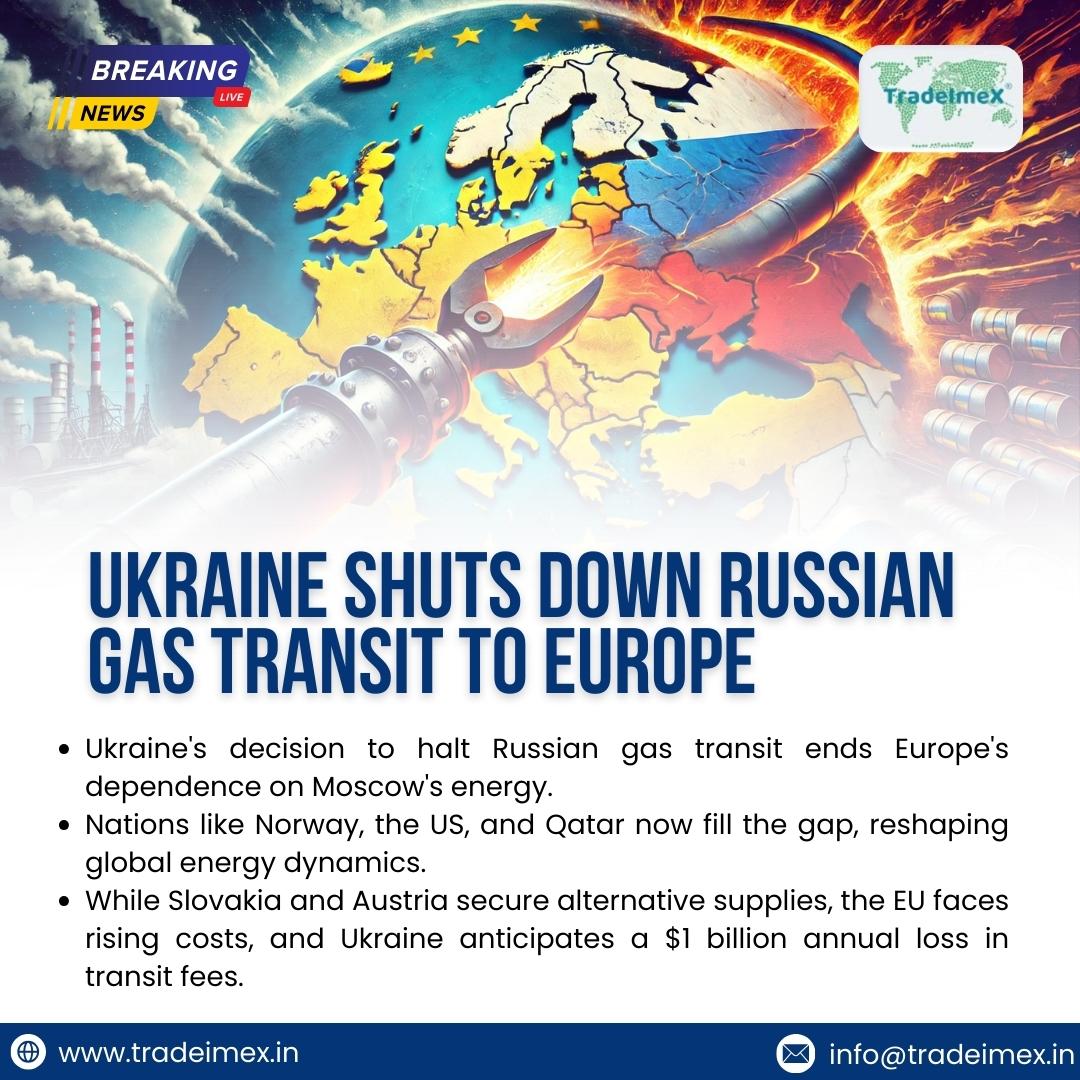Ukraine Ends Russian Gas Transit to Europe

The recent decision by Ukraine to stop the transit of Russian gas through its territory marks the end of an era in Europe. On January 1, 2025, a new chapter in Europe's energy history began as Ukraine officially stopped the transit of Russian gas through its pipelines. For years, Russia has held a dominant position in supplying gas to European countries. However, with this latest development, the balance of power in the gas market is shifting.
War Ends Russia's Gas Supply Dominance to Europe
The ongoing conflict between Ukraine and Russia has played a significant role in disrupting the flow of gas to Europe. Ukraine, a key transit country for Russian gas, has now decided to halt the transit, citing security concerns. This move has effectively ended Russia's stranglehold on the supply of gas to European nations.
Norway, the US, and Qatar Replace Russian Gas
In the wake of Ukraine's decision, European countries have turned to alternative sources for their gas supply. Norway, with its abundant natural gas reserves, became a key player in supplying Europe with energy. The United States also increased its liquefied natural gas (LNG) exports to Europe, providing an alternative to Russian gas. Additionally, Qatar, a major LNG producer, ramped up its shipments to European countries, further reducing the continent's dependence on Russian supplies. These countries have ramped up their production and export of natural gas to meet the growing demand in Europe.
The Loss of Russian Gas Undermined the EU's Competitiveness
The loss of Russian gas has had a significant impact on the European Union's competitiveness. Many industries rely heavily on natural gas for their operations, and the sudden disruption in the gas supply has caused disruptions in production and increased costs. The EU is now looking to diversify its gas sources to avoid being overly reliant on a single supplier.
Source : Ukraine export data
Slovakia and Austria Have Alternative Supplies
Slovakia and Austria, two countries heavily dependent on Russian gas, have taken proactive measures to secure alternative supplies. Both countries have invested in infrastructure to access gas from other sources, ensuring that they are not vulnerable to any future disruptions in the supply chain.
Heating and Hot Water Cut off in Breakaway Moldovan Region
One of the most immediate consequences of Ukraine's decision to stop gas transit has been the disruption of heating and hot water supplies in the breakaway Moldovan region of Transnistria. The region, which relies heavily on Russian gas, has been left in the cold as alternative supplies are sought.
Conclusion
In conclusion, the end of the Russian gas era in Europe represents a turning point in the continent's energy landscape. With the rise of alternative suppliers and the push for diversification, European countries are moving towards a more secure and competitive gas market. Ukraine's decision to stop gas transit may have caused short-term disruptions, but in the long run, it has paved the way for a more resilient energy future for Europe. With countries like Norway, the US, and Qatar stepping in to replace Russian supplies, the continent was able to reduce its dependence on a single supplier and improve energy security. While challenges remain, the diversification of energy sources and investment in infrastructure have helped Europe navigate the post-Russian gas era successfully.
visit now : source : https://twitter.com/TradeImeX/status/1874700679123734931
- Art
- Causes
- Crafts
- Dance
- Drinks
- Film
- Fitness
- Food
- Games
- Gardening
- Health
- Home
- Literature
- Music
- Networking
- Other
- Party
- Religion
- Shopping
- Sports
- Theater
- Wellness


